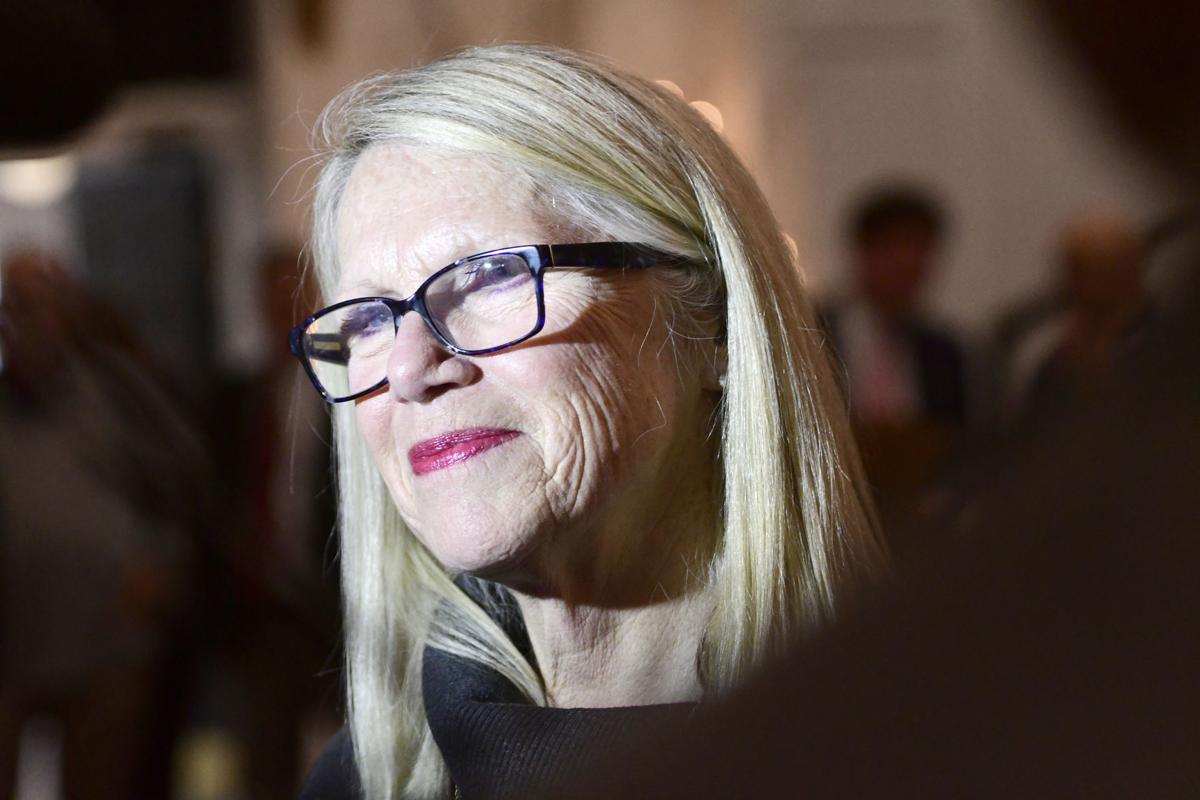West Virginia Rep. Carol Miller Helps Launch Bipartisan Congressional Energy Export Caucus

By Charles Boothe
October 24, 2020 - Rep. Carol Miller, R-W.Va., is part of a bipartisan group of U.S. House members spearheading an initiative to maximize energy exports, including coal.
Called the Congressional Energy Export Caucus, Miller, along with Representatives Henry Cuellar, D-Texas, Jodey Arrington, R-Texas, and Lou Correa, D-Calif., announced the program Thursday during a Zoom webinar.
“As global trade realigns following the COVID-19 pandemic, U.S. energy is a key component to strengthen existing relationships with our allies and foster new partnerships in emerging markets,” the group said in a joint statement.

Carol Miller
Photo: Bluefield Daily Telegraph
The goal is to promote “realistic, responsible, sustainable, and cost-effective solutions and legislation” to reestablish U.S. leadership with a pro-energy trade agenda that “creates jobs, rebuilds the economy, modernizes American energy infrastructure, strengthens U.S. security, and maintains global trade competitiveness.”
“It is crucial that we work to reestablish United States leadership on trade, and specifically energy trade, as we navigate a post-pandemic world,” Miller said. “American energy is a significant competitive advantage that we must embrace, and the Congressional Energy Export Caucus will champion the growth of American energy exports with our allies and into the developing world. This work will create new jobs, build up our infrastructure, and solidify our national security. I look forward to working with Congressmen Cuellar, Arrington, and Correa to advance our shared goals.”
Miller said American energy is reliable and affordable and there are “substantial demands in both modern countries and the developing world.”
“In Europe and Japan, they rely on natural gas to power their grids, and developing regions like East Asia, India, and Africa are investing more resources into using coal and natural gas to create fuel and build their countries,” she said. “Predatory dictators and corrupt regimes in Iran and Russia want to use their low-quality, dirty energy to hold these countries hostage. Our trading partners want to buy and use American energy, and we are looking for more ways to supply them with it.”
In East Asia, and Vietnam in particular, the use of thermal coal-fired power production will be “ramping up” during the next several decades, she added, along with an increase of coal use in other countries.
“As one of the largest countries in the world, India uses incredible amounts of coal,” she said. “On the continent of Africa there is a rapidly growing market for coal, and there are major opportunities to help them produce steel with West Virginia coal. I’m actively developing relationships in Washington to let the world know we want to sell them our energy.”
Miller said natural gas markets must be used as well, and West Virginia will continue its effort to market the product, and avoid overly zealous restrictions and delays in pipeline development.
The Atlantic Coast Pipeline (ACP) project was recently dropped by Dominion Energy and Duke Energy.
The 600-mile natural gas ACP would have transported natural gas from north central West Virginia to Lumberton, N.C. Reasons cited for cancellation of the project, on which an estimated $4 billion has already been spent, centered on “legal uncertainty.”
The Mountain Valley Pipeline, which runs through Monroe County and Giles County, Va., continues to face delays related to court challenges, many resting on the detrimental environmental impact.
That 303-mile, 42-inch diameter pipeline is slated to bring natural gas from north central West Virginia to Chatham, Va.
“Anti-energy activists are pushing overly burdensome regulations to decimate our energy economy and set impossible and irresponsible standards that will short-change our grids and leave us without power when we need it,” she said. “We absolutely must increase pipeline development and storage capacities in the United States, and especially Appalachia. We sit on an abundance of natural gas in West Virginia, and there are worldwide demands for this fuel source.”
Miller said natural gas pipelines are “economical and efficient, they create jobs and strengthen our energy industry.”
The impact on the environment is always a concern, she said, because outdoor recreation is also an economic driver in West Virginia.
“We always need to be considerate of environmental impacts in order to protect our state’s beauty, because we all want clean air and clean water,” she said. “I am confident that we can balance these interests to grow outdoor tourism and get our energy to markets.”
The caucus will also pursue a balance with pursuing green energy projects and technology.
“America’s national security depends on our energy independence,” said Correa. “Our work in the Energy Export Caucus will help American innovators share their technologies with the world. Better and cleaner energy is just around the corner. A green and sustainable future depends on American leadership and technological development. Together, Congress can support and invest in our green future while ensuring American leadership and energy independence.”
“Whether it is oil and gas development in the Gulf of Mexico, wind projects in the Atlantic, or energy production elsewhere in the U.S., American energy strengthens American leadership,” said National Ocean Industries Association (NOIA) President Erik Milito. “U.S. global leadership through energy exports helps drive American energy production, and American energy production safely drives jobs, economic growth, national security, environmental conservation, and countless other benefits that impact every American. NOIA applauds the Congressional Energy Export Caucus for supporting what benefits all Americans and should be a bipartisan priority.”
Chris Hamilton, senior vice president of the West Virginia Coal Association and chair of the state Business and Industry Council, said the goals of the caucus are welcome.
“We fully embrace Congresswoman Miller and her colleagues’ effort to increase energy and coal exports to foreign destinations to assist in powering their economies and build out their infrastructure,” he said. “With West Virginia coal accounting for over 40 percent of all US coal exports, West Virginia coal along with the entire state will benefit from this program.”
Charlie Burd, executive director of the Independent Oil and Gas Association of West Virginia, said the U.S. oil and gas industry “has not realized its full potential as an economic force for America.”
“In view of the prolific production of natural gas in the Appalachian Basin and the capacity to grow the volume of natural gas produced as a means for our nation and the producing states to sustain and grow the jobs and economic benefit the industry provides, there has to be expanded market outlets for our natural gas,” he said.
What Miller is proposing addresses that objective, he added, and “strategically aligns the oil and natural gas industry in America with the purpose of national security and American trade competitiveness.”
“A strategically organized effort to capitalize on the private investor dollar in oil and natural gas drilling for the benefit of the United States in the global economy is long overdue,” he said.

